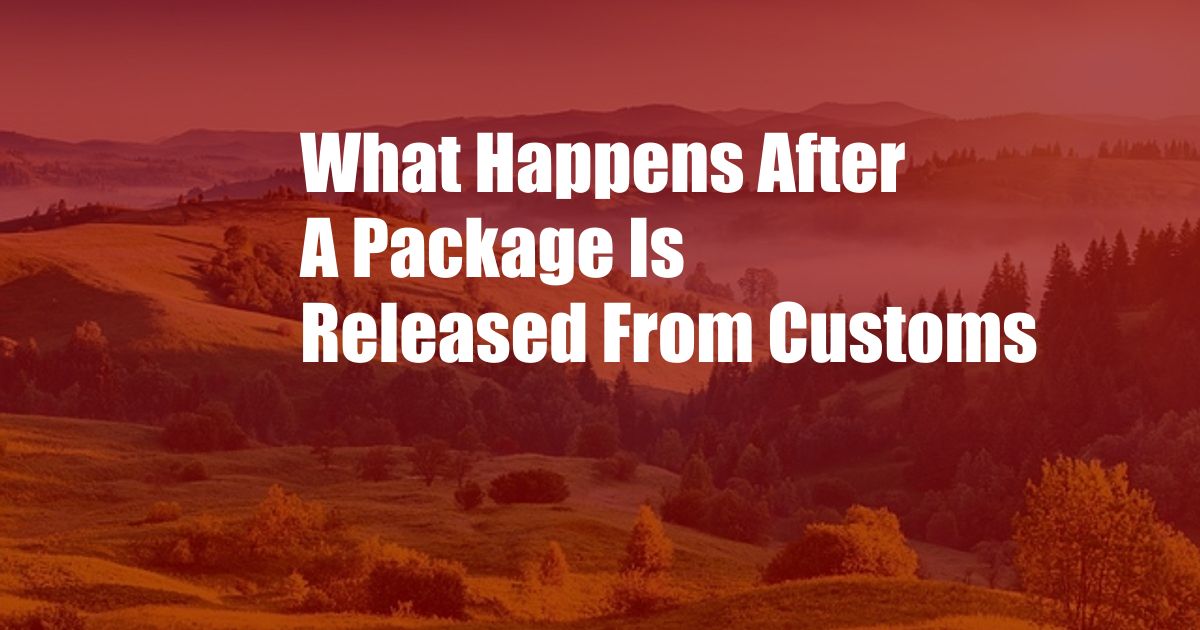
What Happens After a Package is Released from Customs?
I remember the first time I ordered something online from another country. I was so excited to get my hands on it, but I was also a little nervous about what would happen if it got stopped at customs. After all, I had heard stories about people having to pay huge fees or even having their packages confiscated.
As it turned out, my package made it through customs without a hitch. But I was still curious about what would have happened if it had been stopped. So I did some research, and here’s what I found out.
What is Customs?
Customs is a government agency that is responsible for collecting taxes and duties on imported goods. They also enforce laws and regulations related to the importation of goods, such as restrictions on certain items and requirements for labeling and packaging.
When a package arrives in the United States, it is inspected by customs officials to determine if it contains any items that are subject to taxes or duties. If the package does contain taxable items, the recipient will be required to pay the applicable taxes and duties before the package can be released.
What Happens if a Package is Stopped at Customs?
If a package is stopped at customs, the recipient will receive a notice from the customs agency. The notice will explain why the package was stopped and what steps the recipient needs to take to get it released.
In most cases, the recipient will simply need to pay the applicable taxes and duties. However, in some cases, the recipient may need to provide additional documentation, such as a proof of purchase or a license to import certain items.
How Can I Avoid Having My Package Stopped at Customs?
There are a few things you can do to avoid having your package stopped at customs:
- Make sure to declare all items in your package, even if they are not subject to taxes or duties.
- Be honest about the value of the items in your package.
- Do not try to import any items that are prohibited or restricted.
- If you are importing a large or expensive item, consider using a customs broker to help you with the process.
What are the Latest Trends and Developments in Customs?
In recent years, there have been a number of changes to the way that customs operates. These changes include:
- The use of electronic data interchange (EDI) to speed up the clearance process.
- The implementation of risk-based targeting systems to identify high-risk shipments.
- The use of automated systems to inspect packages.
These changes have helped to improve the efficiency and effectiveness of customs operations. However, they have also made it more difficult for individuals to avoid paying taxes and duties on imported goods.
Tips and Expert Advice
Here are a few tips and expert advice to help you avoid problems with customs:
- Use a reputable shipping carrier.
- Be aware of the customs regulations in the country you are importing from.
- Declare all items in your package, even if they are not subject to taxes or duties.
- Be honest about the value of the items in your package.
- Do not try to import any items that are prohibited or restricted.
- If you are importing a large or expensive item, consider using a customs broker to help you with the process.
By following these tips, you can help to avoid problems with customs and get your package released quickly and easily.
FAQ
Q: What is the difference between customs and duty?
A: Customs are taxes that are imposed on goods that are imported into a country. Duty is a tax that is imposed on goods that are exported from a country.
Q: What are the different types of customs duties?
A: There are three main types of customs duties: ad valorem duties, specific duties, and compound duties.
Q: How do I calculate the customs duty on my package?
A: The customs duty on your package is calculated based on the value of the goods in your package and the applicable duty rate.
Q: Can I avoid paying customs duty on my package?
A: In most cases, you cannot avoid paying customs duty on your package. However, there are a few exceptions, such as if the value of your package is below the de minimis value.
Q: What is the de minimis value?
A: The de minimis value is the value below which goods are exempt from customs duty.
Conclusion
Customs is a complex and ever-changing field. However, by following these tips and expert advice, you can help to avoid problems with customs and get your package released quickly and easily.
Are you interested in learning more about customs? If so, please leave a comment below and I will be happy to help.